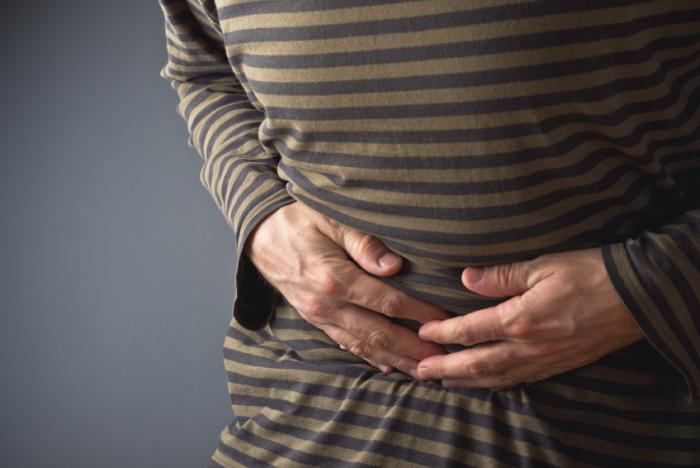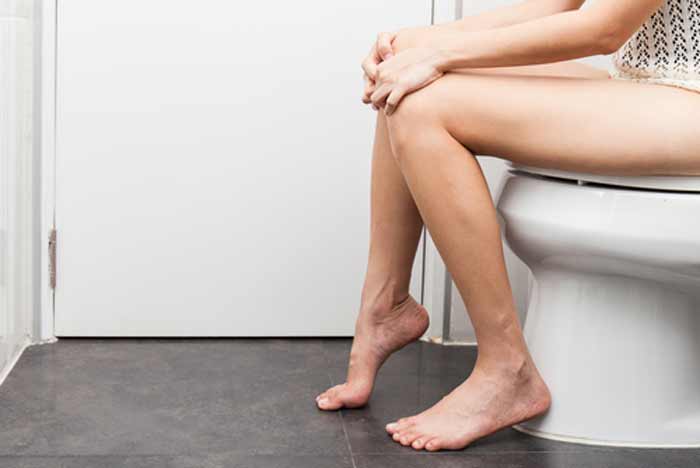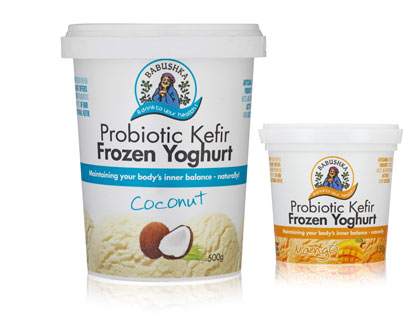Probiotics for Diarrhea-Can Probiotics Cause Diarrhea?
What is the between probiotics and diarrhea? Can probiotics cause diarrhea or they good in healing it? Despite the fact that they are thought to be the friendly or good bacteria in the gut, how are they linked to these bad effects in adults, children, infants, toddlers, babies , dogs and other pets? Read on to find out.
How good are Probiotics for Diarrhea?
One of the major causes of diarrhea is infection in the intestines or in the bowel. The main stay treatment of diarrhea is administering plenty of water to drink or giving intravenous fluids. This replenishes the lost water during the diarrhea episodes.
The infection is normally treated with antibiotics or anti-protozoals such as metronidazole or erythromycin depending on the causative bug in question. Loss of fluid is the major cause of death in diarrhea and it drops like a bombshell on the elderly and children.
Diarrhea results in loss of fluid and electrolytes but one loss that is never first considered is the loss of bacteria inclusive of ‘good’ and ‘bad’ bacteria. Nature has it that among your millions of bacteria in the gut, you have a 5:1 ration of ‘good’ to ‘bad’ bacteria. This creates a void that needs to be filled, failure to which results a more severe diarrhea.
While we may treat diarrhea with antibiotics, antibiotic-associated diarrhea may ensue due to a void created in the bowel of normal flora. This is most commonly seen with both short term and long term use of antibiotics whether for treatment of the diarrhea or some other systemic infection.
The major causative agent Clostridium difficile, predominates in such circumstances. Doctors refer to antibiotic-associated diarrhea as pseudomembranous colitis. This is simply an inflammation of the colon associated with an overgrowth of the bacterium C. difficile mostly due to recent antibiotic use.
Normally in this case, pharmacists administer another antibiotic such as vancomycin or rifamycin which may still have other side effects again!
Probiotics have emanated as an advent beckoned for use in treatment and management of antibiotic associated diarrhea. Probiotics are found in natural yoghurt and other dairy products. Check out some dietary supplements too.
And they are really effective. This has been shown by a research done by Allen SJ et al, 2010 on their effectiveness in treatment of diarrhea. Without treatment, 34 out of 100 subjects who were not put on probiotics were diarrhea free after 3 days while 55 who took them, were diarrhea free after three days. This research further showed that probiotics can alleviate diarrhea in 21 out of 100 people.
Probiotics for diarrhea from antibiotics
There are probiotics that will be beneficial in the treatment of diarrhea while others will actually cause and exercabate it. Choice therefore needs to be made critically so as to correctly choose the strain. It would be advisable to consider the advice of a nutritionist or pharmacist in determining so.
Trials and research have shown efficacy of Lactobacillus GG, Lactobacillus acidophilus and Lactobacillus casei. Other species are Bifidobacterium ssp, Streptococcus ssp, and the yeast Saccharomyces boulardii. The most efficacious strains are Lactobacillus GG and S. boulardii. Especially in the treatment of watery diarrhea and those caused by rotavirus.
Probiotics for diarrhea in infants
Infants are mostly prone to infectious diarrhea due to rotavirus. Introducing your baby to fermented foods and drinks requires that you do it carefully. Feed your baby small amounts of fermented drinks such as yoghurt.
Yoghurt has Lactobacillus species in plenty and in the right colony forming units. This will not only help them prevent infectious diarrhea, but also help them in the digestion of mother’s milk which requires lactase enzyme for its digestion. Lactase is produced by the Lactobacillus.
You can also start the baby on fermented food right away such as cultured vegetable juice. Do this by dipping your finger or sucker in it then let your baby suck on it. Do this three times in a day. Cultured vegetables have Lactobacillus plantarum which is effective in the treatment of colic. With a few days of doing this, start giving your baby a spoonful of juice 3 times a day.
Best Yogurt for Diarrhea +Other good Probiotic brands
The best yogurt would be that with live active cultures in it. They are viable colonies and the longer they stay, the higher they increase in population and offer more benefit.
Get the following brands of probiotics in case you don’t prefer yogurt or in addition to it:
- Culturelle
- Align Digestive Care
- Kefir
- Phillips’ Colon Health
- Ultimate flora Advanced Immunity
Bprobiotics for dogs and cats
Can Probiotics cause Diarrhea?
Probiotics have been studied and found beneficial in the following ways and mechanisms:
- Diarrhea– probiotics have a therapeutic advantage and good outcomes in various etiologies (causes of a disease). The bacteria causing the diarrhea needs to be identified by stool examination and culture and the right probiotic administered to counter it. One etiology of diarrhea may be antibiotic induced diarrhea. This is commonly caused by prolonged intake of antibacterial drugs. They clear the normal flora of the intestines. In the prophylactic treatment of diarrhea, strains of probiotics such as Saccharomyces boulardii, lactis, lactobacillus, Streptococcus thermophiles and Bifidobacterium breve are deployed. Clostridium difficile occurs as a major agent in the cause of diarrhea among others such as the rotavirus that results in nosocomial diarrhea[i].
- Improving immune system function[ii] – probiotics decrease allergic responses in the gut via modulation of various signaling pathways. This is especially important for management of the symptoms of inflammatory bowel disease.
They are meant to have beneficial action against diarrhea but as all drugs and everything else, they have a downside. A slump that can cause an unintended effect that may be contrary to the desired.

How do Probiotics cause Diarrhea
There are various reasons behind the side effects of probiotics such as to cause diarrhea, gas or bloating. These symptoms may appear to be temporary to some individuals but may take long to fade in others. One determining factor is age. Side effects are more prevalent in the young and the elderly and debilitated patients.
Those patients who are immune-compromised such as in those with terminal illnesses or HIV, may also experience a symptom such as diarrhea.
The type of probiotic may also to blame for your diarrhea. Strains vary with different probiotics and if you react to certain species, diarrhea may ensue. This is why it is advisable to switch to another probiotic with different strains of bacteria once you start having such symptoms.
The side effects of probiotics may also be a good indication that the beneficial bacteria are working and that you shouldn’t worry too much.
The mechanisms through which probiotics cause diarrhea includes:
- The beneficial bacteria are remodeling the gut – this is beneficial as probiotics reinforce and outcompete pathogenic strains. Through this, the beneficial bacteria regain a firm footing. If this happens then you may have some diarrhea at first which is not persistent.
- Detoxification and improvement of the gut environment – some specific probiotic bacteria express properties that allow them to bind to toxins from both food and water. In various studies, the binding affinity of some strains to heavy metals such as cadmium and lead have been assessed such as in L. rhamnosus. Some foods contain these metals and when the strains bind them, detox symptoms may occur including diarrhea (Ibrahim F, Halttunen T)[iii].
- Dehydration – lacking water in the gut will not be good during the detox process as water is the ultimate detox medium. Without water, the toxins bound by the strains in the probiotic will not be excreted and instead accumulates in the gut. This causes more signs and symptoms of detoxification.
- Body shock – your gut may have got used to having the pathogenic bacteria around and when beneficial bacteria invade, the body goes into shock. This means you need to give your body more time to adjust to the new environment.
- Overdose – taking too much probiotics may also lead to side effects. Take the prescribed amount and at specified intervals to avoid the side effects.
- Overloading the baby’s digestive system – the baby’s gut also needs to adjust to the new regimen and you may find yourself overdoing it too. If this happens, especially that the baby is still relying on the inherited immunity, allergic reactions may occur to the probiotic strains. This may cause inflammation and consequently diarrhea.
- Taking too long to treat an infection with probiotics – the longer you wait to treat an infection with probiotics, the more likely you may experience diarrhea when you first take them.
- Underdeveloped immune systems – according to the Complementary and Alternative Medicine, the elderly and babies may not respond too well with probiotics as certain strains in the probiotics may cause infections instead.
Kefir and too much Probiotics – Diarrhea Effects
Kefir, is one type of probiotic that contains bacteria/yeast mixture that are coupled with casein and complex sugars. White or yellow particles which are referred to as ‘grains’ contain the complex aforementioned and the ones strained in a batch of milk to form thick, viscous milk; kefir.
Kefir is not an exception as a typical probiotic. The above factors may still lead to cases of diarrhea. Especially if taken too much, intake by babies and the elderly and other immune compromised individuals. There also seems to exist an aspect of the yeast coming in to outbalance the bacteria. Well, this helps potentiate the effects of the probiotic against pathogenic bacteria but your biggest worry should be competition for nutrients with the beneficial bacteria in the kefir. If the yeast outcompetes the bacteria, fungal effects on the gut may lead to diarrhea. Until the “good” bacteria get a strong hold on the yeast environment caused by the “bad” bacteria, you may experience a bout with diarrhea.
How to stop Probiotic Diarrhea
- Decrease the dosage
- Patience to allow your body to adjust
- Take enough water to stay hydrated
- Switch to another probiotic
- understand contraindications in the young, elderly and immune-compromised
- If you have not been taking probiotics, start off with a lower recommended dose per day then increase slowly.
Probiotics and Gas and Bloating
Bloating –the gassy feel in the gut especially in the pathology of inflammatory bowel disease has been attributed to an imbalance in the bacterial flora of the gastrointestinal system. Introducing a probiotic strain such as the Bifidobacterium longum into the gut to counterbalances the ‘bad’ bacteria. The bloating is therefore curbed.
Bloating and gas are signs that the body is having difficulties detoxifying and points out directly to water which is the mainstay of detoxification in the body.
During probiotic therapy, the beneficial bacteria remodel the gut and bind to toxins which need to be excreted. Failure to which bloating and gas is felt.
One other cause is suddenly increasing your intake or starting a new probiotic with high doses.
To prevent bloating and gas, give your body enough time to adjust while slowly increasing the dose if need be. Take enough water too to displace the gas and detox.
Sources and References
- [i] Guandalini S. Probiotics for children with diarrhea: An update. J Clin Gastroenterol 2008; 42 (Suppl 2):S53-S57.
- A complete and useful review that focuses on the efficacy of probiotics for diarrhea of different etiologies in children in different settings.
- [ii] Lemberg DA, Ooi CY, Day AS. Probiotics in pediatric gastrointestinal diseases. J Pediatric Child Health 2007; 43:331-336.
- [iii] Probiotic bacteria as potential detoxification tools: assessing their heavy metal binding isotherms. Ibrahim F1, Halttunen T, Tahvonen R, Salminen S.


I am taking the Culturelle probiotic suggested by the Pharmacist. I have IBS. I took one capsule and about an hour after, I had gas, cramps and diarrhea. In researching your article I see where this can be a side effect and it is recommended to cut back on dosage. Recommended dosage is 2 a day and I only took one. I am VERY concerned about taking probiotics now; I don’t want to stir up or worsen my IBS symptoms. I have not had diarrhea issues prior.
How do I cut back in this case?
Is there a pediatric probiotic you would suggest or would you suggest Kefir products (yogurt) to ease into the process of correcting my gut flora?
So as not to confuse the issue of “pediatric” probiotics – I am 65 but wondering if I should seek out a pediatric strength probiotic to ease into things.